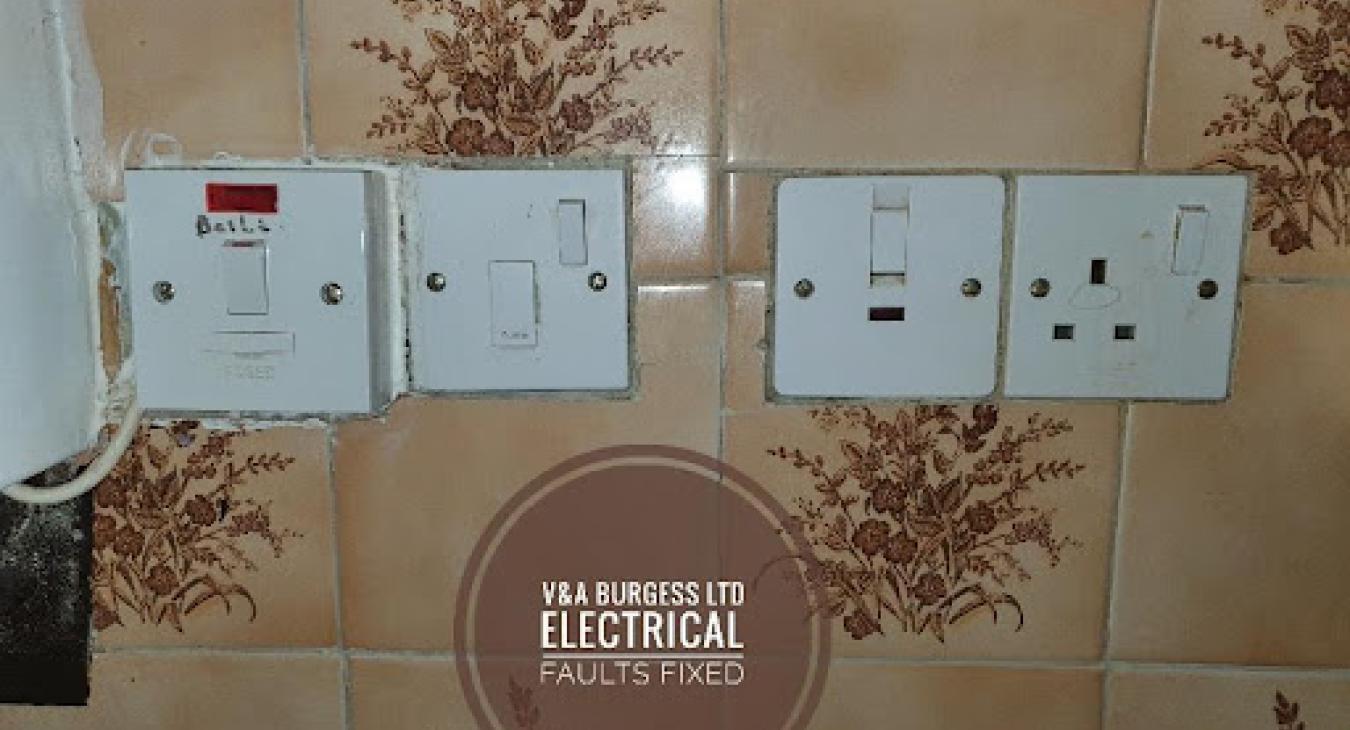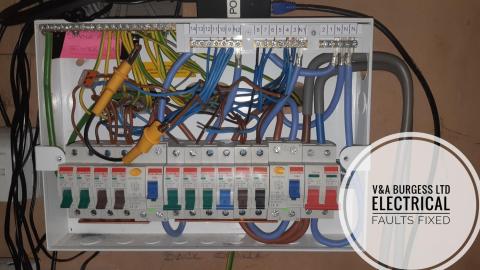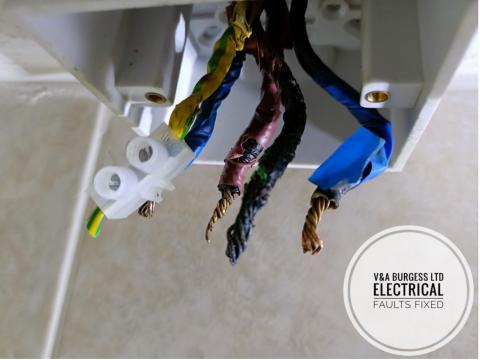
If you are wondering “Is it legal to change a plug socket UK?” then in some ways it is a sensible question. Really, the question should be “Can I change a plug socket myself, legally?” and the answer is YES.
There are some little “however’s” to contend with though. 😊 When electrical work is carried out. There is nearly always a requirement for some testing and inspection work to be carried out alongside any installation work. Nearly every electrical job will require some form of inspection and testing in order to ensure that the installation has not been made less safe due to the alterations, additions, or replacements.
Consider swapping electrical accessories in your home. When swapping one or more sockets for new ones there is no way of telling if the circuit is safe to work on without the approved voltage indicator to GS38. This device is an approved device for detecting voltage and, along with a proving unit could cost around £150.
Then we have to consider if the circuit is a Ring Final Circuit (RFC) (sometimes incorrectly called a Ring Main). If the circuit is a RFC then we will need to ensure that each of the conductors has continuity around the ring before carrying out any work on the circuit. This will require the use of a low resistance ohmmeter. The test leads should be correctly nulled before measuring the end-to-end values of each of the conductors and then once verified ad continous the values should be referenced to the expected length of the circuit and to each other for comparison to ensure that the test results are acceptable.
Once we are sure the circuit is safe to carry out work on then we can begin. When the sockets have been successfully swapped, the only way to ensure that the circuit is still safe is to carry out the same sequence of tests once again to ensure that continuity has not been broken whilst replacing the sockets. It is easy for a conductor to slip out of the rear of the socket terminal and break the ring final continuity.
Quickly we can see that in order to comply with BS7671 wiring regulations and possibly EAWR1989 that we must have a level of knowledge and skill above and beyond the “its only 3 wires, how hard is it?” approach. We must also possess the correct, calibrated test equipment in order to ensure that sufficient testing is carried out to ensure the safety of the work, the installation and those using and living with the installation. When considering “is it legal to change a plug socket UK”, it is entirely legal to do this providing that the requirements of BS7671 are met.
When should plug sockets be changed?🤔
As plug sockets age, they become worn and internal moving parts can become loose or damaged. Whilst on the outside an older plug socket might look okay, inside there can be high resistances caused by poor connecting parts, dirt, debris, and corroded metals.
If any of the following apply to your plug sockets then you should probably consider changing them:
- They look very old – the sockets may not have been replaced for a very long time and as such there may be internal problems developing that are going unnoticed. Electrical accessories do not last forever and will eventually fail.
- Discoloured, previously white but now beige – If the socket is that old that it has become discoloured or perhaps has become discoloured with heat then it is best that the sockets are at least checked by an electrician if not replaced.
- Browning or staining around the pin holes or in general – when there is discolouration, browning or staining around the front face of the socket and in particular the pin holes, it can mean that there are serious issues behind the face of the socket which need addressing by a professional.
- Any cracking which can indicate serious problems – when sockets become cracked on the front face with no recollection of mechanical impact it can mean that there is (or has been) serious overheating occurring. This is an indication that there are electrical problems that require investigation by a qualified electrician.
- Switches are stuck ON or OFF or feel ‘spongy’ – Switching mechanisms are not designed to last forever and can give up after several years of service. When a switch becomes jammed in the ‘on’ or ‘off’ position it can mean that there is dust, dirt or debris blocking the movement inside the socket. It can also mean that there are other problems preventing the socket from switching on or off. This should be investigated by an electrician who should, as a minimum, replace the socket.
- It’s difficult to insert or remove plugs from your plug sockets – when it becomes difficult to insert or remove plugs from the socket it’s definitely time to change it. Sockets should allow plugs to slip in and out firmly and securely but without excessive force.
- It’s too easy to put plugs in or they fall out – A plug should not fall out of a plug socket. This indicates that the pins are not being held correctly and the socket is excessively worn or broken making poor contact and adding to electrical fire risk.
- You hear any crackling or popping noises from your sockets – one would hope that this is an obviously bad situation but nevertheless let’s explain it 😊. If there are popping and banging noises coming from a socket or several sockets then please, have this investigated! Quickly!
- Some sockets appear not to work – When sockets just stop working it’s a bad sign. Don’t ignore this, have it checked out. Too many customers leave seemingly minor electrical problems alone which then develop into bigger problems at greater expense.
- Sockets or plugs become warm or hot in operation – If your plug sockets or plugs on appliances are becoming hot in operation then this is generally a very bad sign. Some high-powered appliance may cause a plug top to become warm for short periods whilst they are in full swing but NEVER should a plug top or plug socket become hot under normal operating conditions. This is a sign that it is being overloaded or there is a fault with wiring or appliances. Get this kind of problem checked out without delay.
- Your fuse blows or circuit breaker trips regularly on sockets – If you find that fuses are blowing regularly or a circuit breaker is tripping then there is likely an electrical issue that requires some attention. An electrician should be called to investigate the fault. Using sophisticated electrical test equipment and fault-finding skills is necessary to trace the problem and rectify it.
- They are broken or damaged visibly – If your sockets are broken, smashed or otherwise visibly damaged then they should be replaced without delay. Once affected in this way, there is a great risk of electric shock to those using the electrical system.
If you need to know “is it legal to change a plug socket UK” then we hope that we have been able to clear this up for you. If you need electrical advice, quotes for a project or an emergency electrician then we are based in the North West covering Liverpool to Wigan. Get in touch today.











